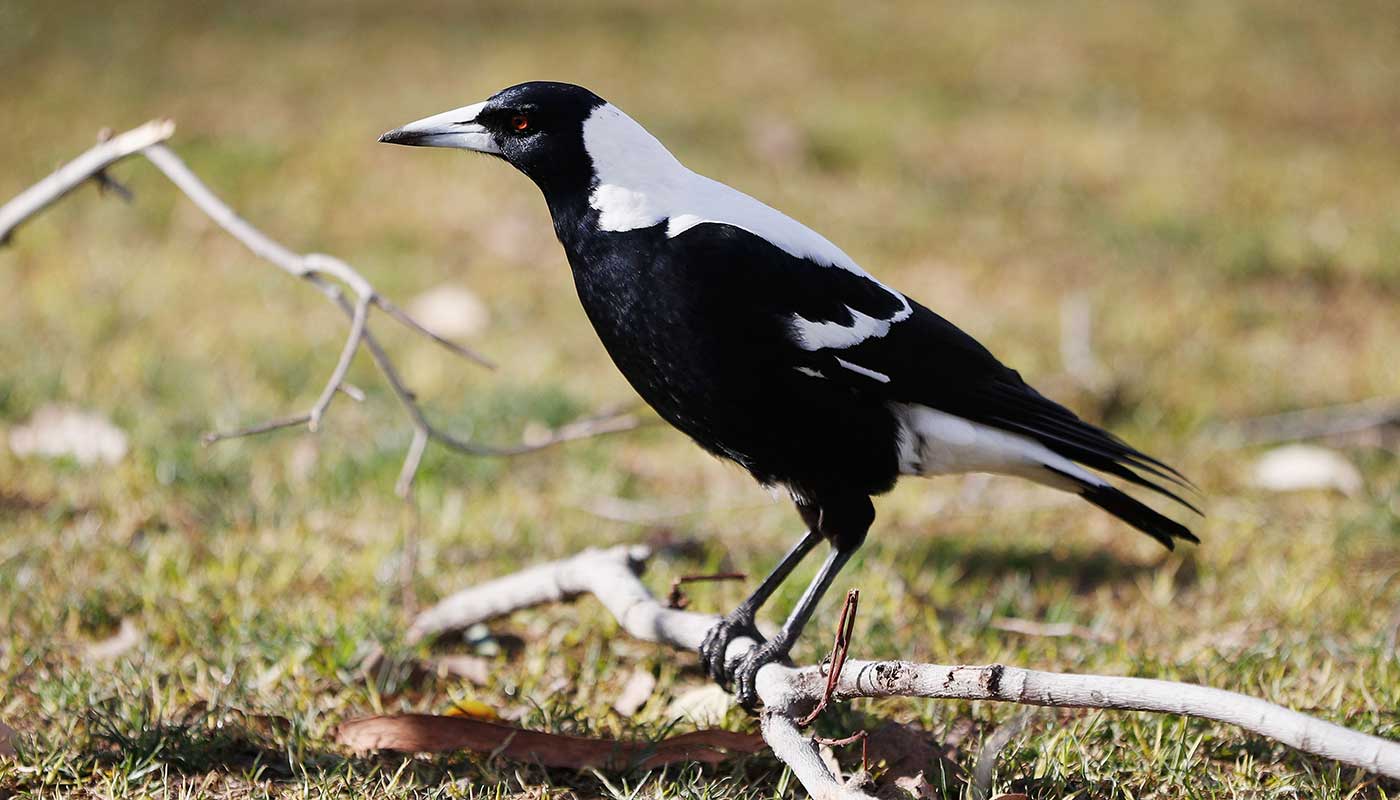Why bird attacks on humans are becoming more common
Australian man killed by aggressive magpie nicknamed Swoop Dogg by locals

A free daily email with the biggest news stories of the day – and the best features from TheWeek.com
You are now subscribed
Your newsletter sign-up was successful
A man in Australia has died in a bicycle accident while trying to escape from a swooping magpie, fuelling fears about the increasing rate of bird attacks on people worldwide.
The BBC reports that the 76-year-old cyclist “suffered head injuries on Sunday when he veered off a path and crashed into a park fence” in the seaside city of Wollongong, south of Sydney. He died later in hospital.
The broadcaster notes that swooping magpies are a “common threat in Australia during spring and often cause injuries to cyclists and pedestrians, but fatal incidents are rare”.
The Week
Escape your echo chamber. Get the facts behind the news, plus analysis from multiple perspectives.

Sign up for The Week's Free Newsletters
From our morning news briefing to a weekly Good News Newsletter, get the best of The Week delivered directly to your inbox.
From our morning news briefing to a weekly Good News Newsletter, get the best of The Week delivered directly to your inbox.
Witnesses to this weekend’s attack claim that the bird involved is well-known among locals for its aggressive behaviour and has been dubbed “Swoop Dog” after US rapper Snoop Dogg, The Times reports.
Resident Jason Crosskey said: “It swoops quite a lot of people. It swooped a kid yesterday. For something like that to happen is pretty alarming actually.”
According to police, around eight similar attacks by birds have occurred in the Wollongong area in recent weeks. And the fatal incident comes just a fortnight after a Sydney council ordered the shooting of another Australian magpie after it “developed a loathing for cyclists and caused one man to suffer a heart attack”.
The Australian magpie is a different species to the magpies found in Europe and is known for extremely aggressive behaviour in spring, which falls between September and November down under.
A free daily email with the biggest news stories of the day – and the best features from TheWeek.com
However, The Independent reports that the number of bird attacks on people in the UK increasing too, with many birds of prey and seabirds adopting more aggressive tactics in order to defend their eggs and young against perceived threats.
Dr Steve Portugal, an ecophysiologist from Royal Holloway, University of London, told the newspaper that the great skuas species, in particular, “are renowned for dive-bombing anyone that gets too close to the nest, and colonies of Arctic terns will protect their babies by aggressively mobbing any intruders”.
He adds: “As available nest sites become harder to find due to habitat loss, it’s likely that these interactions between diligent bird parents and humans will increase.”
Andrea Jones, from the California chapter of environmental organisation National Audubon Society, told the BBC in July that bird attacks in the US are also increasing in frequency.
“The increase we’re seeing is because we’re encroaching on bird habitats. So there are more bird-human interactions,” she said.
However, Jones added: “As long as people respect their space, I don’t think there’s going to be an epidemic of bird attacks.”
-
 Democrats push for ICE accountability
Democrats push for ICE accountabilityFeature U.S. citizens shot and violently detained by immigration agents testify at Capitol Hill hearing
-
 The price of sporting glory
The price of sporting gloryFeature The Milan-Cortina Winter Olympics kicked off this week. Will Italy regret playing host?
-
 Fulton County: A dress rehearsal for election theft?
Fulton County: A dress rehearsal for election theft?Feature Director of National Intelligence Tulsi Gabbard is Trump's de facto ‘voter fraud’ czar
-
 Epstein files topple law CEO, roil UK government
Epstein files topple law CEO, roil UK governmentSpeed Read Peter Mandelson, Britain’s former ambassador to the US, is caught up in the scandal
-
 Iran and US prepare to meet after skirmishes
Iran and US prepare to meet after skirmishesSpeed Read The incident comes amid heightened tensions in the Middle East
-
 Israel retrieves final hostage’s body from Gaza
Israel retrieves final hostage’s body from GazaSpeed Read The 24-year-old police officer was killed during the initial Hamas attack
-
 China’s Xi targets top general in growing purge
China’s Xi targets top general in growing purgeSpeed Read Zhang Youxia is being investigated over ‘grave violations’ of the law
-
 Panama and Canada are negotiating over a crucial copper mine
Panama and Canada are negotiating over a crucial copper mineIn the Spotlight Panama is set to make a final decision on the mine this summer
-
 Why Greenland’s natural resources are nearly impossible to mine
Why Greenland’s natural resources are nearly impossible to mineThe Explainer The country’s natural landscape makes the task extremely difficult
-
 Iran cuts internet as protests escalate
Iran cuts internet as protests escalateSpeed Reada Government buildings across the country have been set on fire
-
 US nabs ‘shadow’ tanker claimed by Russia
US nabs ‘shadow’ tanker claimed by RussiaSpeed Read The ship was one of two vessels seized by the US military